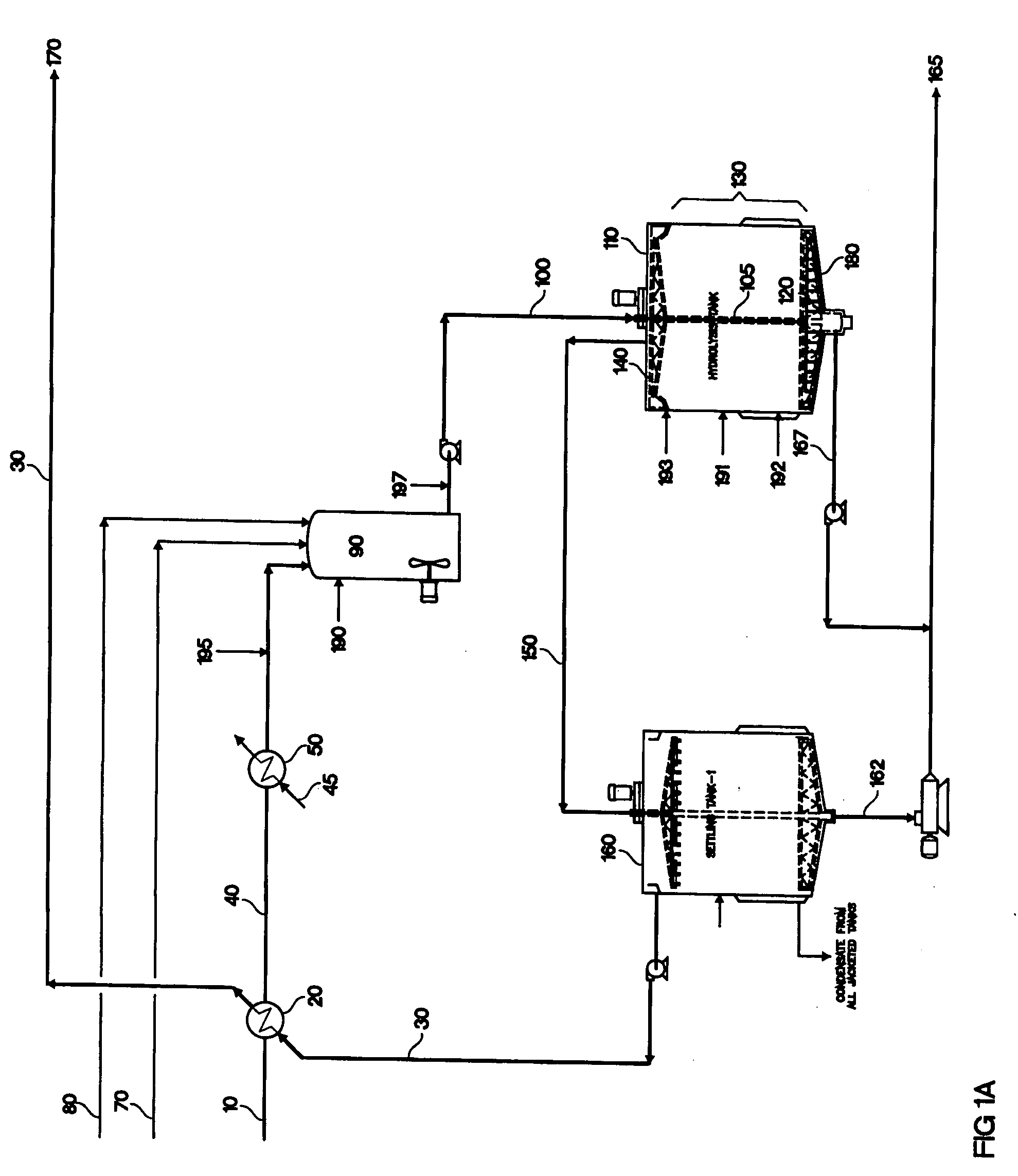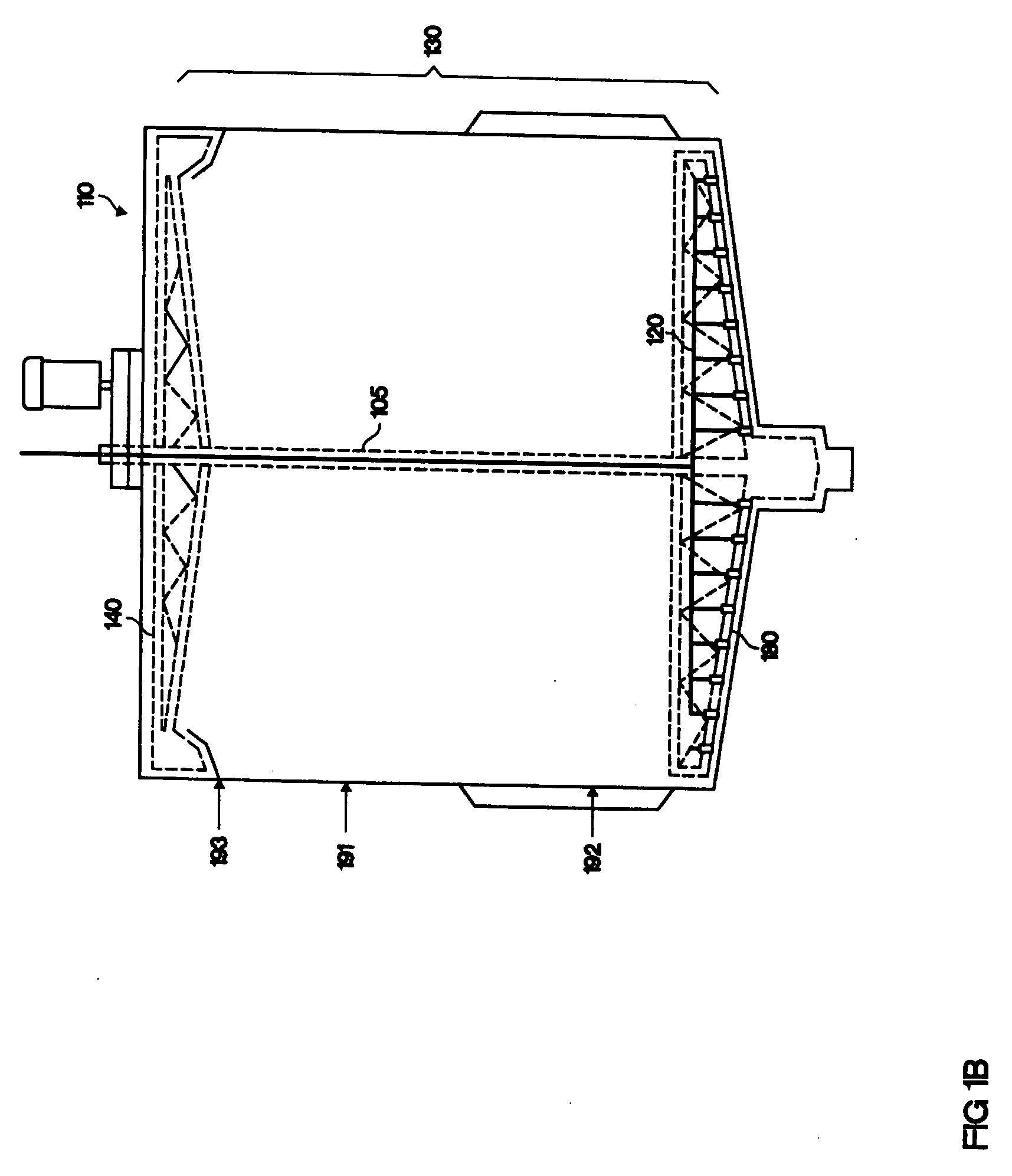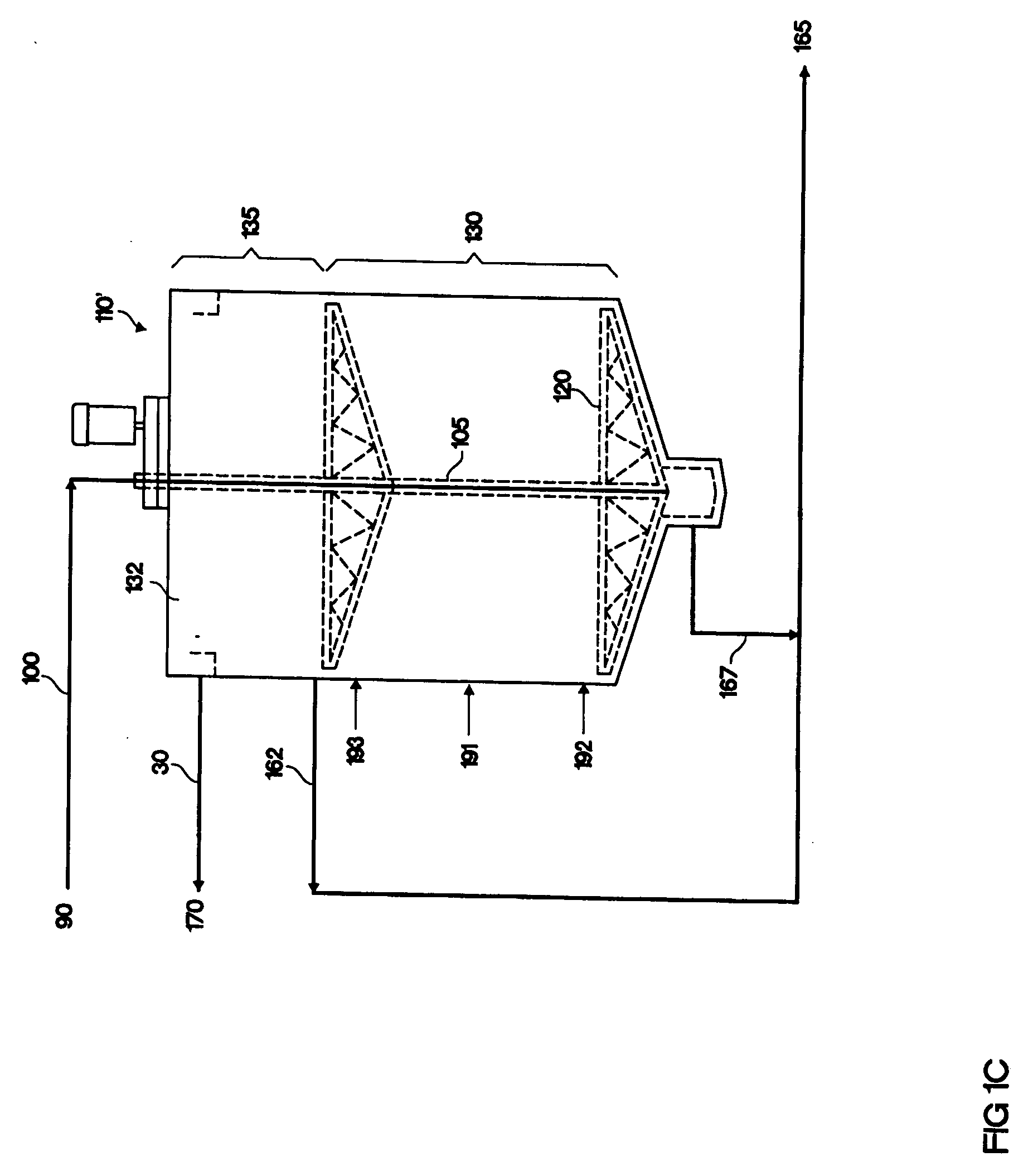Upflow settling reactor for enzymatic hydrolysis of cellulose
- Summary
- Abstract
- Description
- Claims
- Application Information
AI Technical Summary
Benefits of technology
Problems solved by technology
Method used
Image
Examples
example 1
Large Scale Upflow Hydrolysis Reactor
[0113] Pre-treated wheat straw is prepared using the method of U.S. Pat. No. 4,461,648 (Foody, which is incorporated herein by reference). The pre-treated material is an aqueous slurry of 7.8% undissolved solids, at a temperature of 70° C., and a mass flow rate of 553 t / hr. This aqueous slurry is cooled to 60° C. in a heat exchanger (20), against the product stream (30). The 60° C. slurry is then cooled to a final temperature of 50° C. by cold water at heat exchanger (45). The slurry is pumped into the hydrolysis make-up tank (90; volume 86,000 gallons) along with cellulase enzymes (70; 5 FPU / g cellulose) and ammonia (80; 1200 grams per tonne wet slurry), to adjust the pH to 4.5 to 5.0. The contents of the hydrolysis make-up tank are mixed for a residence time of 40 minutes and then the combined stream (100) is pumped out of the make-up tank and down a pipe through the middle (105) of the hydrolysis tank (110). The hydrolysis tank is jacketed wi...
example 2
Upflow Hydrolysis with Trichoderma Cellulase Enzyme
[0115] Wheat straw was pre-treated using the method of U.S. Pat. No. 4,461,648 (Foody, which is incorporated herein by reference). The pre-treated material was slurried in water at a concentration of 3.7% undissolved solids and the pH was adjusted to 5.5 with 30% sodium hydroxide. The undissolved solids were 55% cellulose. The slurry was pumped at a rate of 40 liters per minute into the bottom of a vertical hydrolysis reactor (110; FIG. 1C). This corresponds to an upward flow velocity of 0.7 feet / hr. The tower volume was 144,700 liters, of which the hydrolysis zone (130) was the lower 115,000 liters (a height of 34.4 feet) and the top 29,700 liters was a clarifier (135). The diameter of the tower was 3.8 meters and the height was 13.5 meters (44.3 feet). The temperature of the slurry was 55° C. upon entry in the reactor, and gradually decreased to 50° C. near the top of the reactor. The cellulase enzyme, obtained from Trichoderma (...
example 3
Upflow Hydrolysis with Trichoderma Cellulase Enzyme in Presence of Flocculating Compound
[0119] A hydrolysis of pre-treated wheat straw was carried out as described in Example 2 with 4.4% undissolved solids, except that a flocculent was added to improve the settling of the solids. A cationic polymer, CA4500 (SNF Floerger®, France), was added at a dosage of 2 kg per tonne undissolved solids and dispersed inline upon addition after the point of enzyme addition to the slurry.
[0120] The solids profile in the reactor over the course of the run is shown in FIG. 4. At a level of 1 foot above the bottom, the undissolved solids settled to a concentration of 6% to 10%, by weight, similar to that observed in Example 2, and was significantly more concentrated than the feed concentration of 4.4% undissolved solids. At points higher than this within the reactor, the solids concentration was 5.5% to 8%. This indicated the flocculent was effective at aggregating and settling the solids.
[0121] The...
PUM
 Login to View More
Login to View More Abstract
Description
Claims
Application Information
 Login to View More
Login to View More - R&D
- Intellectual Property
- Life Sciences
- Materials
- Tech Scout
- Unparalleled Data Quality
- Higher Quality Content
- 60% Fewer Hallucinations
Browse by: Latest US Patents, China's latest patents, Technical Efficacy Thesaurus, Application Domain, Technology Topic, Popular Technical Reports.
© 2025 PatSnap. All rights reserved.Legal|Privacy policy|Modern Slavery Act Transparency Statement|Sitemap|About US| Contact US: help@patsnap.com



